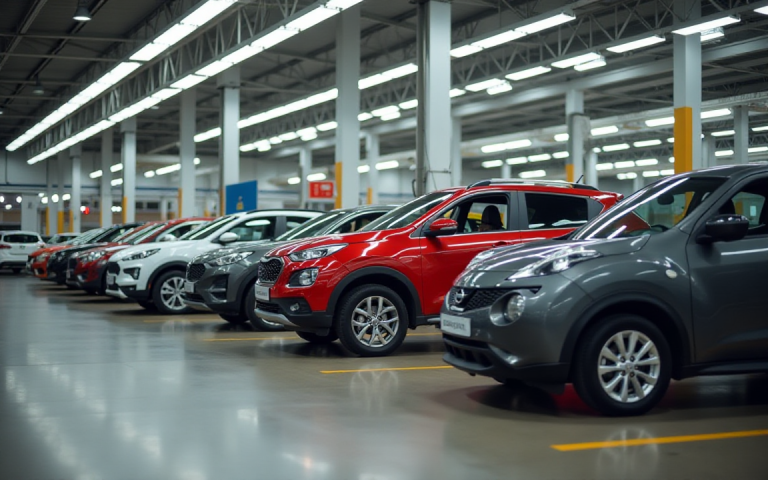South Africa’s automotive industry is under strain as a combination of import dominance, low local content levels, and new US tariffs weighs on production and jobs.
Trade Minister Parks Tau revealed on Wednesday that 12 companies have closed and more than 4,000 jobs have been lost in just two years, with the pressures showing no sign of easing.
In 2023, sales of locally produced vehicles reached 515,850 units — well below the South Africa Automotive Masterplan 2035 target of 784,509 — while localisation has stalled at 39%, far short of the 60% goal.
These challenges are being compounded by the US’s recent 30% tariff on automotive imports from South Africa, which threatens the country’s $1.64 billion (28.7 billion rand) export market.
Imports dominate as local targets fall short
Data presented by Tau at an automotive parts conference showed that 64% of vehicles sold in South Africa are imported. Despite being home to global manufacturing hubs for Volkswagen, Toyota, and Mercedes-Benz, domestic output has not kept pace with strategic targets.
The government’s localisation drive — aimed at boosting the share of local labour, assembly, and components in production — has been stuck at 39% since last year, leaving a 21% gap to the 60% target set for 2035.
Tariffs threaten export contracts
US tariffs, imposed from April, have hit the country’s automotive exports hard. The 30% duty, announced by US President Donald Trump last week, now affects South Africa’s $1.64 billion worth of vehicle and parts exports to the US.
Some companies have already lost American contracts as a result, raising concerns about further layoffs in an industry that directly employs 115,000 people, including over 80,000 in component manufacturing.
In response, South Africa submitted a revised trade offer to Washington on Tuesday, aiming to reduce the tariff impact. The negotiations come as the industry faces shrinking export margins and rising costs, creating urgency for a resolution.
Incentives shift to electric vehicle production
To counter the slowdown, the government has expanded its manufacturing incentive scheme to include electric vehicles (EVs) and related components.
Tau stressed that boosting local content is “existential” for the sector, noting that a 5% rise in localisation could generate an additional 30 billion rand in procurement — significantly higher than the 4.4 billion rand value of South Africa’s US export market.
The government hopes that aligning incentives with EV manufacturing will attract more investment and safeguard jobs, particularly as global demand for EVs rises.
Global automakers eye local production
Several international carmakers are moving to establish or expand local assembly to strengthen South Africa’s role in the global supply chain.
Stellantis is preparing to break ground on a new facility in the Eastern Cape, while China’s Chery is also exploring local manufacturing opportunities.
These projects could help offset the decline in existing operations, though the sector’s recovery will depend on resolving tariff disputes and achieving higher localisation rates.
The post South Africa’s auto sector faces 12 closures, 4,000 job losses as US tariffs bite appeared first on Invezz

